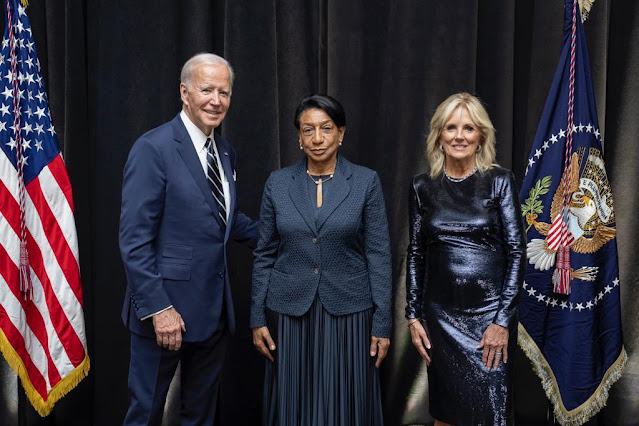In the 2021 Global Hunger Index, Sierra Leone ranked 106th out of the 116 countries. With a score of 31.3, according to the index, Sierra Leone has a level of hunger that is serious.
WFP’s Hunger Map for Sierra Leone in July 15, 2022 showed that 2.2 million people are chronically hungry, with 1.6 million people are acutely hungry.



All of these are occurring at a time when the world is emerging from the shock of COVID-19 pandemic. Additionally the war between Russia and Ukraine has also led to unprecedented price shocks in food, energy, and fertilizer globally, due to the predominance of Ukraine in global food production.
In Sierra Leone, poor smallholder farmers are struggling to produce adequate food supplies, and are facing severe negative impact because of the inability to afford agricultural inputs and related services.
Hence, food security, especially among the rural population, who depend largely on farming as a primary source of livelihood remain an existential threat to proper living.
Additionally WFP data in 2022, has shown that young people in particular, still lack educational opportunities and employment opportunities today. Over 56 percent of Sierra Leone’s population live below the poverty line.
Against this backdrop, prominent Sierra Leonean lawyer and diplomat, Omrie Golley has recently set up a private investment vehicle, Golley Agriculture Developments SL Limited, working in partnership with an Israeli company called Netafim to enhance food production in Sierra Leone, using innovative techniques, that combine education and the use of specialized advanced and modern techniques.
Netafim is one of the world’s largest irrigation Companies, and a renowned world leader in advanced drip irrigation solutions and utilising water and available land effectively with advanced agricultural technology.
In pursuance of this plan, the Golley Agricultural Team comprising local agriculturists, together with representatives of Netafim, have in recent days, embarked on fact-finding mission to identify suitable lands to cultivate essential food supplies.
The main thrust of the tour has been to identify fifteen (15) plots of 100 acres each from across the country for the construction of Agric-Educational Farms (AEF).
The purpose of the AEF is to train local student farmers in the latest agricultural techniques, including the use of drip irrigation. The intention is to train local farms in optimising chosen agricultural sites for production.
Local farmers will be trained in all aspects of agriculture, using advanced agricultural equipment, knowledge, and technology essential for maximum production.
At the end of the training, the intention is that local communities will then be able to create and manage efficiently commercial farms.
The land identification tour which started in the northwest, north, and later south and east regions of the country, has been to identify strategic locations that would stand the best chance of optimum production of various crops, with clear criteria for such production.
Commenting on his latest investment plans, Ambassador Omrie Golley had this to say:
“We are fortunate to have a country endowed with rich agricultural resources, including verdant fields and rich organic soil. We need to use these God-given resources to achieve food security by feeding ourselves and exporting agricultural produce. We need to harness the best in agricultural technology and education to achieve optimum results, which will in turn aid national recovery and development. We can assist and embrace the private sector and make great advances in the field of agricultural development. So achieving this has always been my dream”
Ambassador Omrie Golley in 2019 did promise to reactivate his contacts, after his very successful stint as our Ambassador to South Korea, and returning to the private sector, to bring on board all of them, to ensure that all key players of Sierra Leone’s political system work together for the betterment of the people.
DNT News with Correspondent reports from Malik Abdul Bangura, Freetown

.jpg)


.jpg)





.jpg)


